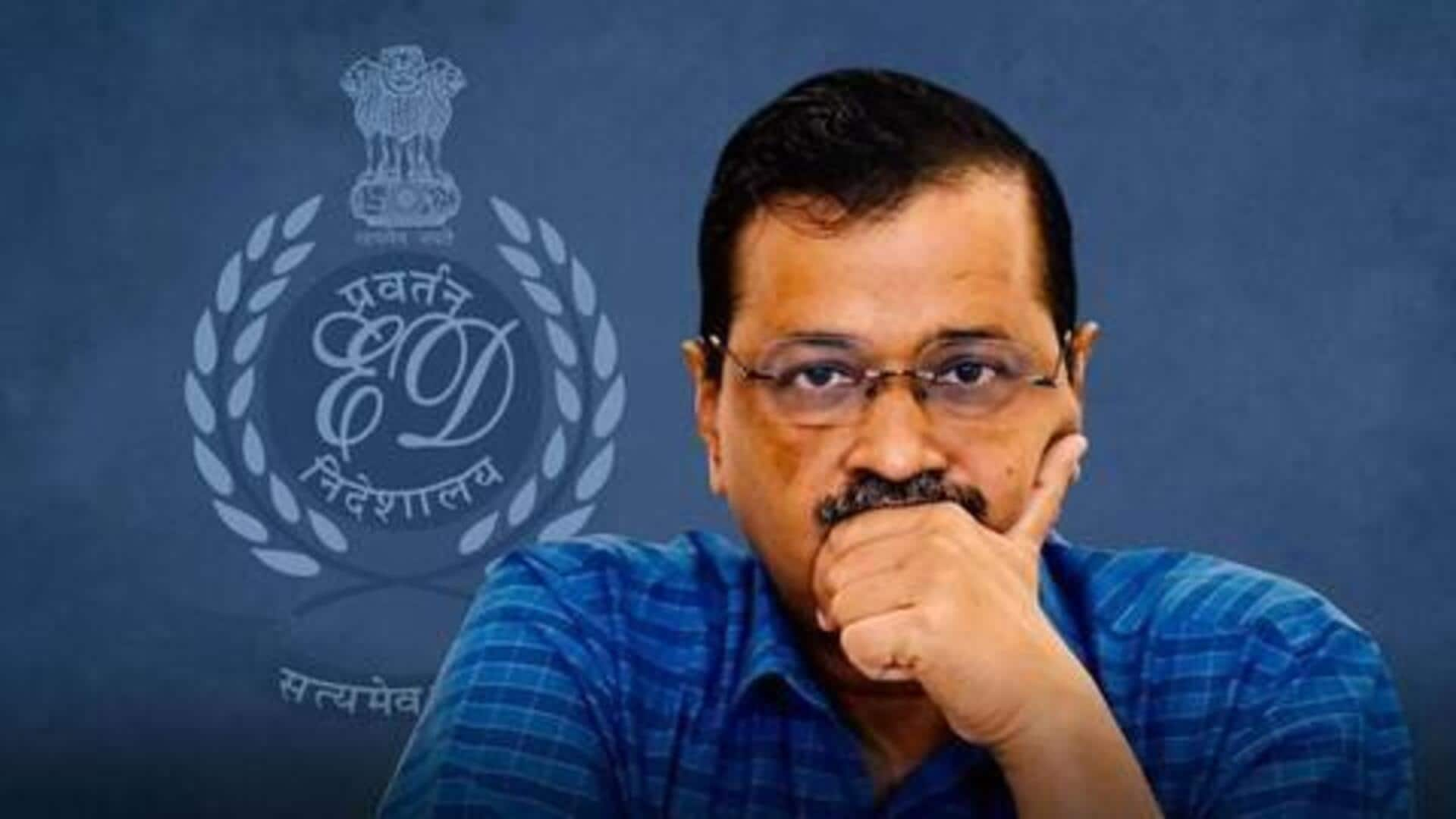
'Kejriwal arrested because of own conduct…': ED tells SC
What's the story
The Enforcement Directorate (ED) has defended its decision to detain Delhi Chief Minister and Aam Aadmi Party leader Arvind Kejriwal in an affidavit submitted to the Supreme Court. The agency refuted Kejriwal's objections, stating that he failed to cooperate despite numerous calls for his participation. The ED accused Kejriwal of evading questioning by not appearing before the investigating officer, even after being summoned nine times.
Context
Why does this story matter?
On March 21, the ED arrested Kejriwal in the money laundering case linked to the now-scrapped Delhi excise policy. The case revolves around alleged irregularities and money laundering in the creation and execution of the excise policy 2021-22, which was later rescinded. The federal agency has alleged that the AAP is a significant beneficiary of the illicit funds generated from the "scam." It has also alleged that the money was funneled into the party's poll campaign for Goa and Punjab.
Agency's accusation
ED claims it has material evidence against Kejriwal
In the document, the ED stated that Kejriwal's actions contributed to the necessity of his arrest. The agency said, "Kejriwal by his conduct has, himself, contributed and aided the investigating officer regarding the existence of the necessity to arrest." The ED also claimed it had material evidence suggesting Kejriwal was guilty of money laundering. It clarified that his arrest was made in good faith and not due to any ill-intentioned or unrelated reasons.
Equality principle
ED denies allegations that Kejriwal's arrest was ill-intentioned
The ED firmly denied any allegations that Kejriwal's arrest was ill-intentioned. The document noted, "The arrest of a person, however high he may be, for commission of offense based on material, can never violate the concept of free and fair elections." It further stated that treating a politician differently from an ordinary criminal would amount to arbitrary exercise of power and violate the principle of equality under Article 14 of the Constitution.
Evidence disclosure
ED a machine of lies: AAP
The ED defended its decision to detain Kejriwal, attributing it to his uncooperative behavior which made confrontation with the material evidence impossible. The agency expressed its readiness to disclose the evidence used as grounds for his arrest. In response, AAP retorted, "The ED has become nothing but a machine for telling lies. Each time the ED comes up with new manufactured lies at the whims of their masters, the Bharatiya Janata Party."